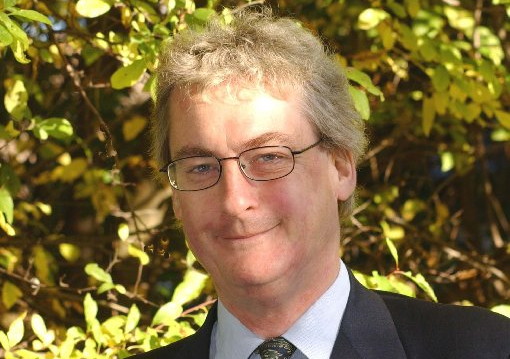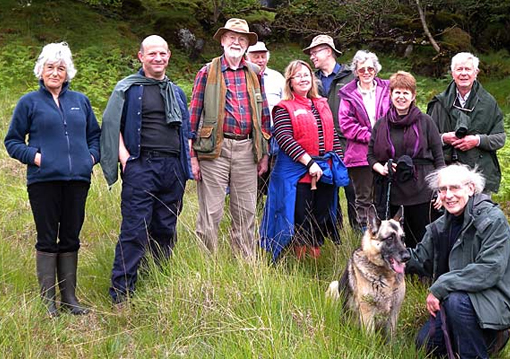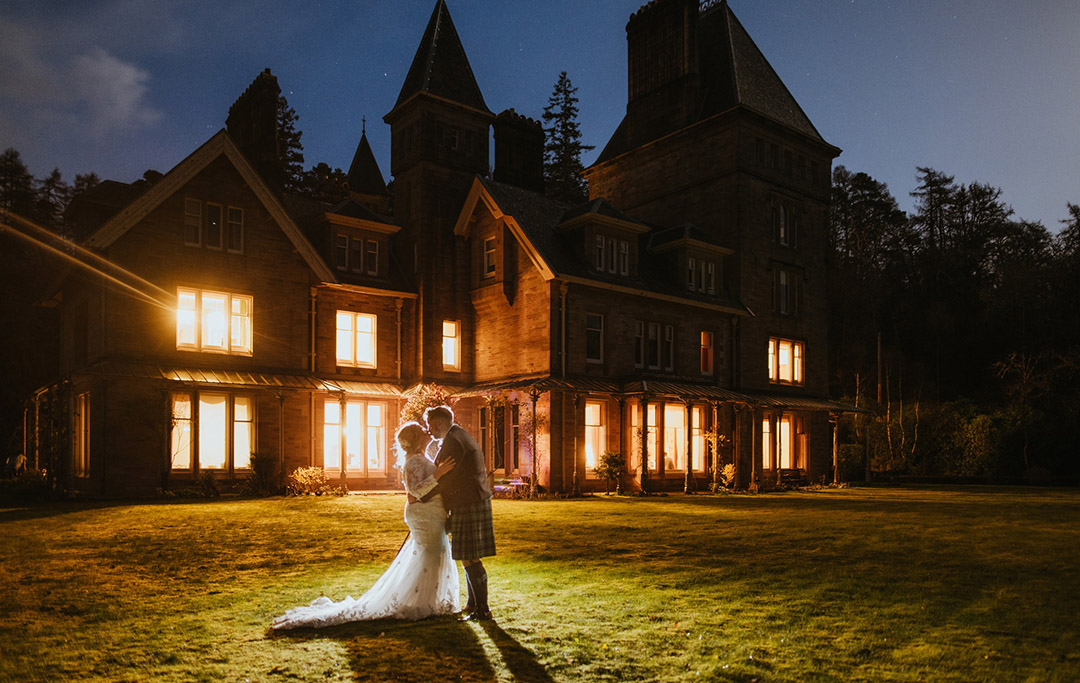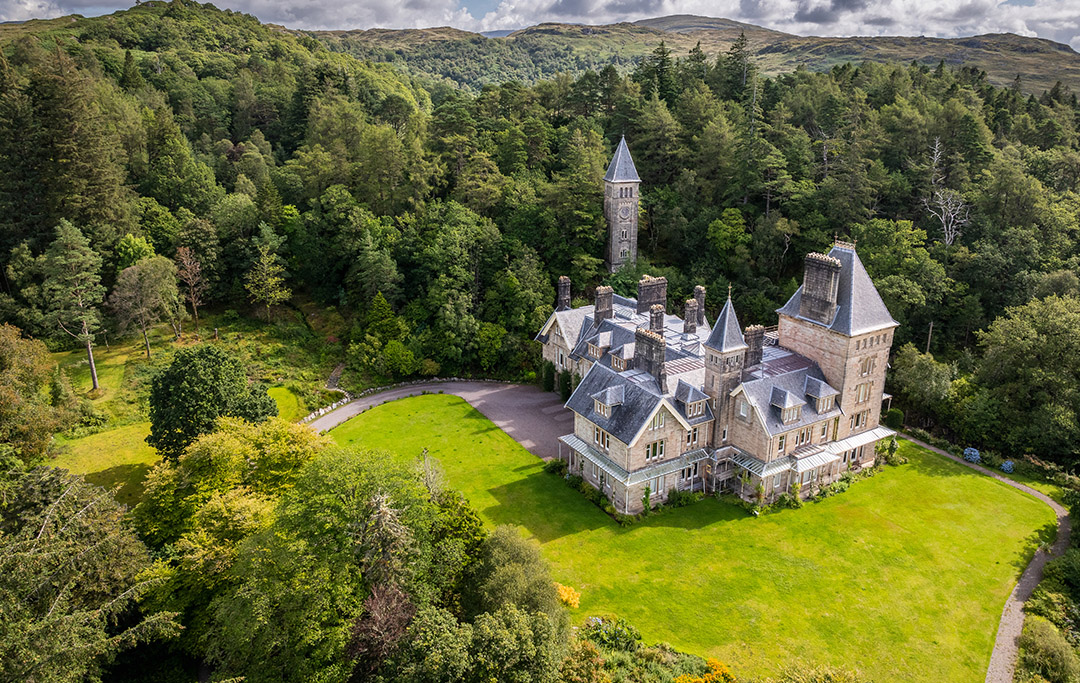
Welcome To The Andrew Raven Trust
For twenty years Andrew Raven was closely involved in the development and running of Ardtornish Estate. He lost a seven year battle with cancer in 2005. His legacy lives on, both in many aspects of Ardtornish, and also through The Andrew Raven Trust – a Scottish Registered Charity (SCO39488), established in 2008.
The Trust aims to support and encourage imaginative, sensitive and practical rural development in Scotland.
Several weekend events organised at Ardtornish have brought together inspirational speakers, rural policy advisors, rural community activists from all over Scotland for stimulating discussion in the context of an estate which tries to demonstrate sustainable rural activity.
An Obituary of Andrew Raven
by Dr Nigel Leask
In memory of Andrew
Andrew Raven, who died on October 2nd 2005 at the age of 46 after a long fight against non-Hodgkin’s lymphoma, will be publicly remembered for his leading role in rethinking land management and environmental issues in rural Scotland. His sadly-truncated career reflects a range of achievements which would cast lustre on the full span of any professional life. Andrew pursued his vision of a sustainable and socially-responsible policy for the land with energy and passion, as well as a degree of pragmatism which could translate ideals into practical outcomes. For all his privileged background, his strongly egalitarian temperament led him to view privilege as a duty of trust to be delivered in the light of informed professional judgement. His was an ‘uncommon love of the common good’: a ‘doer’ not an onlooker, he expected from others the high professional and ethical standards which he set for himself. What could initially seem to be Andrew’s sternness of aspect was more apparent than real, disguising his great personal warmth and charm.
Born in Shepreth, Cambridge, in 1959, Andrew’s passion for all things rural originated in childhood holidays at his family’s estate at Ardtornish in Morvern, in theWest Highlands . From his mother Faith he derived his characteristic directness of manner and generosity in friendship. From his father John Raven, a Classical scholar and Senior Tutor of King’s College, Cambridge , during the heady 1960’s, he inherited a spirit of sceptical inquiry and a deep love of nature (his father was also a distinguished botanist and naturalist.) Educated at King’s Choir School, Cambridge and then Marlborough College (1971-76), Andrew proceeded to Bristol University (1977-80) where he took a 2.1 in Architecture. Although architecture never became a career option for him, it sowed the seeds of an enduring interest in the applied arts and built environment which complemented his strongly practical nature. Perhaps most important, though, in Bristol he met Mandy Game, who became his wife in 1987, and with whom he enjoyed a long and fulfilling relationship until his death.
In 1980 they both moved to Edinburgh where Andrew undertook an apprenticeship in woodwork with Chris Holmes. Andrew and Mandy shared a real interest in encouraging the best in contemporary arts and crafts, an interest which in Mandy’s case developed into a professional vocation. Meanwhile his interest in rural affairs had been tugging him in a different direction, and in 1983 he began a two-year postgraduate diploma in Land Economy at Aberdeen University (1983-85); his aptitude was such that he was awarded the Royal Institute of Chartered Surveyors Prize for his year. Sharing a small cottage at Udny Green with friends on the course he incubated many of the ideas about Scottish land management which would inform his later career. He galvanised the sleepy world of green wellies by inviting luminaries like Brian Wilson and Jim Hunter to address Aberdeen ’s Land Economy Society.
After graduation in 1985 he joined Smiths Gore in Edinburgh as a trainee land agent: he quickly showed his abilities in this field by managing a number of rural estates and offering sound advice to clients on the basis of meticulous preparation and thorough knowledge of new legislation and regulations. He was appointed Head of Smiths Gore’s Natural Heritage Department, from which he gained valuable experience in working with statutory conservation agencies, notably Scottish Natural Heritage. But land agency alone didn’t satisfy him for long: in 1995 he was appointed as a Director of the John Muir Trust, the landowning charity of which he’d been a trustee since 1989, when it had begun to acquire Knoydart and other substantial areas of theHighlands . He was instrumental in the Trust’s acquisition of the beautiful Sandwood estate on the northwest coast of Sutherland . His interest in the non-commercial side of land management was furthered by membership of the Rural Forum, bringing policy makers face to face with Scottish rural communities, and of the Scottish Consumer Council, upon which he represented the views of rural consumers. Proud to be denominated a ‘civic Scot’, he was an enthusiast for devolution, and after the establishment of the Scottish parliament he showed a keen, although never uncritical, interest in the Scottish political scene.
Andrew resigned from the JMT in 1998 upon taking up the Chairmanship of the Deer Commission for , the same year in which he was first diagnosed with cancer. It is a particular testament to his willpower that he took on the considerable trials associated with his new office during the first of his health battles. The high respect which his expertise, wide knowledge, and professional judgement earned for him was manifest in a string of subsequent public appointments: Chair of the Forestry Commission’s National Committee for Scotland, and of the Forestry for People Panel (2000); Chair of the Governing Body of the Macaulay Land Use Research Institute (2001), Trustee of the Millennium Forest for Scotland Trust, and Member of the Nominations Committee for the National Trust for Scotland (2005). Appointment as judge for the Scottish Quality Awards in Planning brought him back to his early love for architecture. He was awarded the OBE for Services to the Environment in June 2004.
Andrew’s public dedication to rural life was entirely informed by his connection with Ardtornish, his desire to give something back to the place which had given him so much. As Director of the Ardtornish Estate Company and Partner in the Firm of Ardtornish Farms, and assisted by the factorial skills of his old friend Angus Robertson, Andrew applied the principles of sustainable development and social trusteeship in his own backyard. Little wonder that he spoke of a feeling of homecoming every time he crossed the Corran Ferry en route for Morvern and Ardtornish, and he will be remembered with huge warmth by the local community. Such is the public record of his life: his family and extensive circle of friends will have other memories of a man of generous and cultured spirit, of his love of opera, cricket, and well-hung saddle of hare, his unforgettable bon mots, his unselfish interest in his friends, and the inspiring courage with which he fought the disease which finally took him away.
Nigel Leask, 6th October 2005
Meet Our Trustees








The
Coal Shed Cafe
The Coal Shed is our brand new ‘estate-to-plate’ concept cafe here at Ardtornish. Open 7 days a week, our menu showcases lamb and beef from Old Ardtornish Farm and wild venison from our hills.
Traditional Winter
Weddings
Searching for an idyllic Winter Wedding venue on Scotland’s West Coast? Exclusive use of 19th Century Ardtornish House provides a secluded retreat for you and your guests, with a backdrop of unparalleled natural beauty.
Ardtornish House
Exclusive Hire
Join us for an unforgettable self-catering holiday in Ardtornish House, a unique Victorian mansion rich in history. Experience the charm of this distinctive retreat, unwind into nature and discover why our guests return year after year











